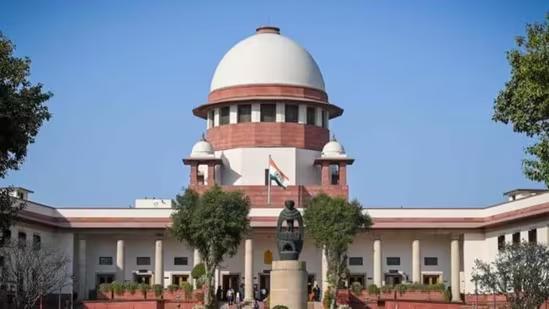
Court can’t grant assent to bills, only Guv & Prez can: Maha to SC
The power of assent to bills passed by state assemblies lies solely with the Governor and President, and not with the courts, the Maharashtra government argued in the Supreme Court. This statement was made by senior advocate Harish Salve, representing the Maharashtra government, during a hearing on a presidential reference. The reference pertains to whether the court can impose timelines on the Governor and President to deal with bills passed by state assemblies.
The controversy surrounding the issue of assent to bills has been ongoing for some time now. The Supreme Court is currently hearing a presidential reference in this regard, with the Madhya Pradesh government seeking a clarification on the issue. The reference was moved by the President of India, seeking the court’s opinion on whether the court can impose timelines on the Governor and President to deal with bills passed by state assemblies.
During the hearing, senior advocate Harish Salve, representing the Maharashtra government, argued that the power of assent to bills lies solely with the Governor and President. He cited Article 111 of the Constitution, which states that the President shall give his assent to a bill passed by both houses of Parliament, but the Governor can withhold assent to a bill passed by the state legislature.
Salve further argued that the court cannot grant assent to bills, and that it is the duty of the Governor and President to give assent to bills passed by state assemblies. He also pointed out that the court’s power is limited to reviewing the reasons given by the Governor and President for withholding assent to a bill.
The Maharashtra government’s argument is in line with the existing legal framework. Article 200 of the Constitution states that the Governor shall reserve a bill passed by the state legislature for the consideration of the President. However, the President can ask the Governor to reconsider the bill, and if the Governor still decides to withhold assent, the President can give his assent to the bill.
The court’s power to review the reasons given by the Governor and President for withholding assent to a bill has been established through various judicial pronouncements. For instance, in the case of S.P. Sampath Kumar v. Union of India (1987), the Supreme Court held that the court can review the reasons given by the Governor for withholding assent to a bill, but it cannot grant assent to the bill.
The issue of assent to bills has been a contentious one in recent times. In 2018, the Madhya Pradesh government passed a bill to regularize the services of contractual employees, but the Governor withheld assent to the bill. The government then moved the Supreme Court, seeking a clarification on whether the court could impose timelines on the Governor to deal with the bill.
The controversy surrounding the issue of assent to bills has far-reaching implications for the functioning of the legislative process in the country. If the court is granted the power to impose timelines on the Governor and President, it could potentially undermine the independence of the executive and the legislative branches of government.
In conclusion, the Maharashtra government’s argument that the power of assent to bills lies solely with the Governor and President is in line with the existing legal framework. The court’s power is limited to reviewing the reasons given by the Governor and President for withholding assent to a bill, and it cannot grant assent to the bill. The issue of assent to bills is a complex one, and it requires careful consideration of the constitutional framework and the separation of powers between the legislative, executive, and judicial branches of government.






